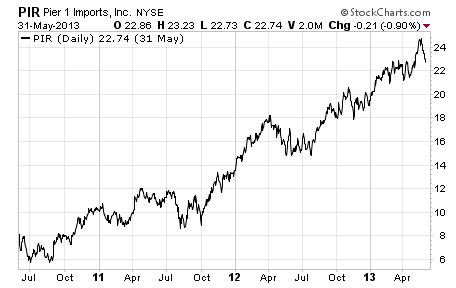Who Should Trade Penny Stocks
 Should You Trade Penny Stocks?
Should You Trade Penny Stocks?
Who should trade penny stocks?
Most penny stock gurus would say EVERYBODY!
But thats just Wrong, Wrong, Wrong. Look, were all adults here and penny stocks arent for everyone.
There are people who should not trade penny stocks ever!
Let me say that again, there are people who should not be trading penny stocks at all
Youve got to have the right mental attitude to trade penny stocks.
Risks are everywhere.
Penny stocks are volatile thats what makes them exciting and profitable to trade. But one bit of bad news, or a missed earnings report, or a flub by the CEO, and the penny stock you once loved could stab you in the back.
You can lose money trading penny stocks you can lose LOTS of money.
Penny stocks are risky. So you cant be trading with money you need for your mortgage or rent or food or for your kids education.
Penny stocks require research and that takes time.
If youre lazy and dont want to spend time reading and studying and researching penny stocks… then you probably shouldnt be trading them.
Penny stocks require your constant attention You dont need to look at them every hour of every day but you cant ignore them for years and years.
Once again – if you dont like spending a little time every few days reviewing your investments you might be better off in a lame mutual fund.
And thats why penny stocks arent for everyone.
Youve got to have the risk tolerance to trade these stocks Do a little self analysis and think about why youre trading penny stocks
Why People Trade Penny Stocks
So, why do you trade penny stocks?
Ill tell you why I trade penny stocks its the huge gains you can make from them.
As a penny stock grows and grows and grows, the gains are compounded in a huge way.
Just look at this classic penny stock Pier 1 Imports

PIR generated huge penny stock gains 22,990% for shareholders over just a couple of years.
Heres how the numbers work out
On March 13, 2009, PIR closed at $0.11 a share thats right eleven cents.
A few years later, by May of 2013, you could sell those same shares for well over $24 a share.
The peak value was a whopping $25.29 on May 15, 2013. – Thats a 22,990% gain!
A $1,000 investment would have got you 9,090 shares. And in 2013, those shares could have been sold for $229,886.10
Now nobody buys at the bottom and sells at the top but really, would you have been upset with even half of those gains?
Thats why traders LOVE penny stocks thats why I love penny stocks.
Can Beginners Trade Penny Stocks?
Now Ive told you who shouldnt trade penny stocks and why you should love trading penny stocks but I want you to notice something
I didnt say anything about beginning traders.
If youve never traded stocks before, trading can be exciting and new (especially penny stocks).
But youve got to learn the ins and outs of the business. Thats how youll become successful at trading. And, sometimes trading can get confusing.
Its not hard and with a bit of experience, its actually easy. So well do our best to help
So youve decided you want to try your hand at trading and investing in penny stocks start here and learn as much as you can. Read the site, sign up for our free e-letter. And dont be afraid to shoot us questions.
Good trading
Brian Kent
Penny Stock Research
Note: Brian Kent has been trading the markets for more than two decades and now writes and edits for PennyStockResearch.com. You can sign up for the penny stock research newsletter a trusted source for the truth about penny stocks! Sign up today and get a free research report – http://pennystockresearch.com/free-reports/
Category: Trading Penny Stocks




